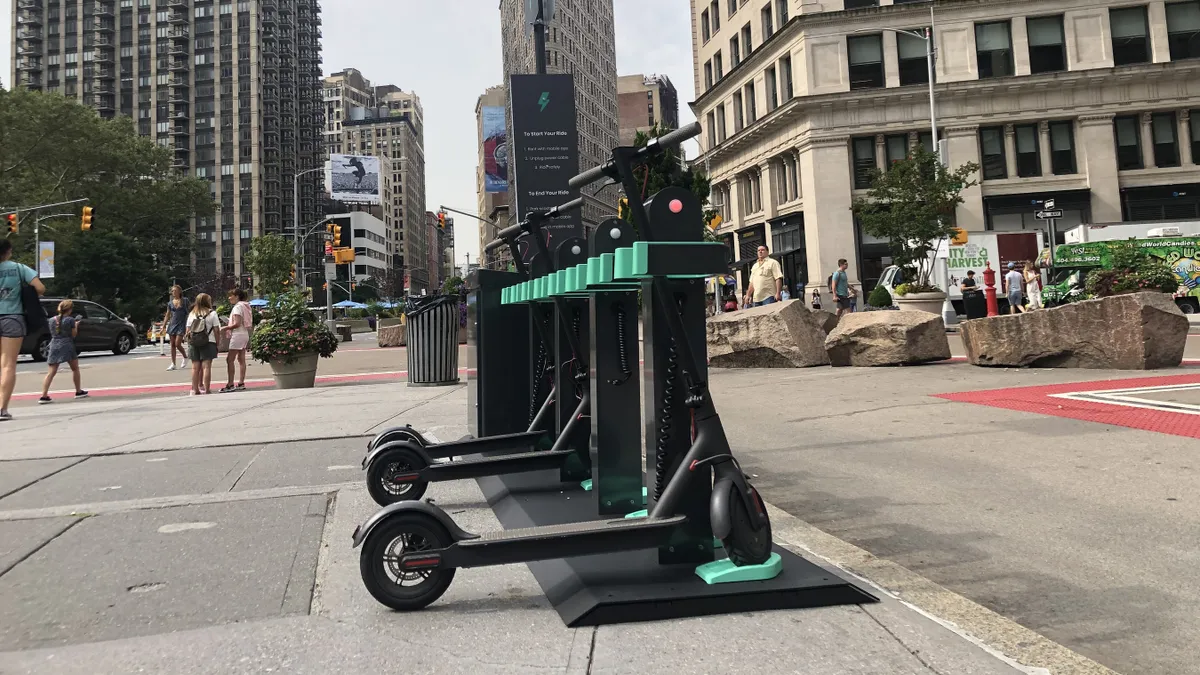Dive Brief:
- Charge, a startup working on docking and charging stations for e-scooters and e-bikes, is preparing for a New York City launch by displaying a model station in Worth Square in Manhattan. The demo station was first installed there last week.
- The Charge stations can accommodate as many as 10 vehicles, reducing sidewalk clutter and offering a charging and service port.
- Co-founder and CEO Andrew Fox told Smart Cities Dive that Charge has agreements to install chargers on 400 sites in the city once e-scooters are approved for use in the city. A bill legalizing the scooters has passed the state legislature, but is awaiting a signature from New York Gov. Andrew Cuomo.
Dive Insight:
New York City has been slow to the micromobility trend, even as other cities have seen their mobility options transformed by the new vehicles. It was only in June that the state legislature voted to lift a ban on e-bikes and e-scooters in the city, and even then, the vehicles are being kept out of Manhattan in order to reduce congestion and clutter. Cuomo has yet to sign the bill, citing safety concerns.
Fox said it's important New York City be prepared when, not if, the vehicles become available. "There's pent up demand, it's part of what is going to make a city smart," he said. "We can learn from what other cities have gone through and done."
Cities have struggled with clutter from having hundreds of vehicles dumped on sidewalks effectively overnight with no parking areas or rules governing them. Some cities have tried to designate parking areas or require that vehicles be locked to existing racks or infrastructure and private companies have sprung up to move the scooters around, but Charge saw an opportunity to use private space to keep the vehicles off the street. Through partnerships, the company has placed docks at nearly 3,000 locations nationwide.
By getting into New York City early, Charge hopes to avert some of those clutter issues and make e-scooters fit better into the city. Of particular importance is keeping sidewalks clear for disabled or visually impaired people, which has been a problem in several cities (a lawsuit in San Diego centers on this issue). The demo in Worth Square was designed to get "the max amount of eyeballs," Fox said, even if the infrastructure won't be initially approved for Manhattan; he said it garnered around 50 million impressions.
"When this becomes legal, we're going to start with the narrative of safety and accessibility and full transparency of what makes these networks work," Fox said.










